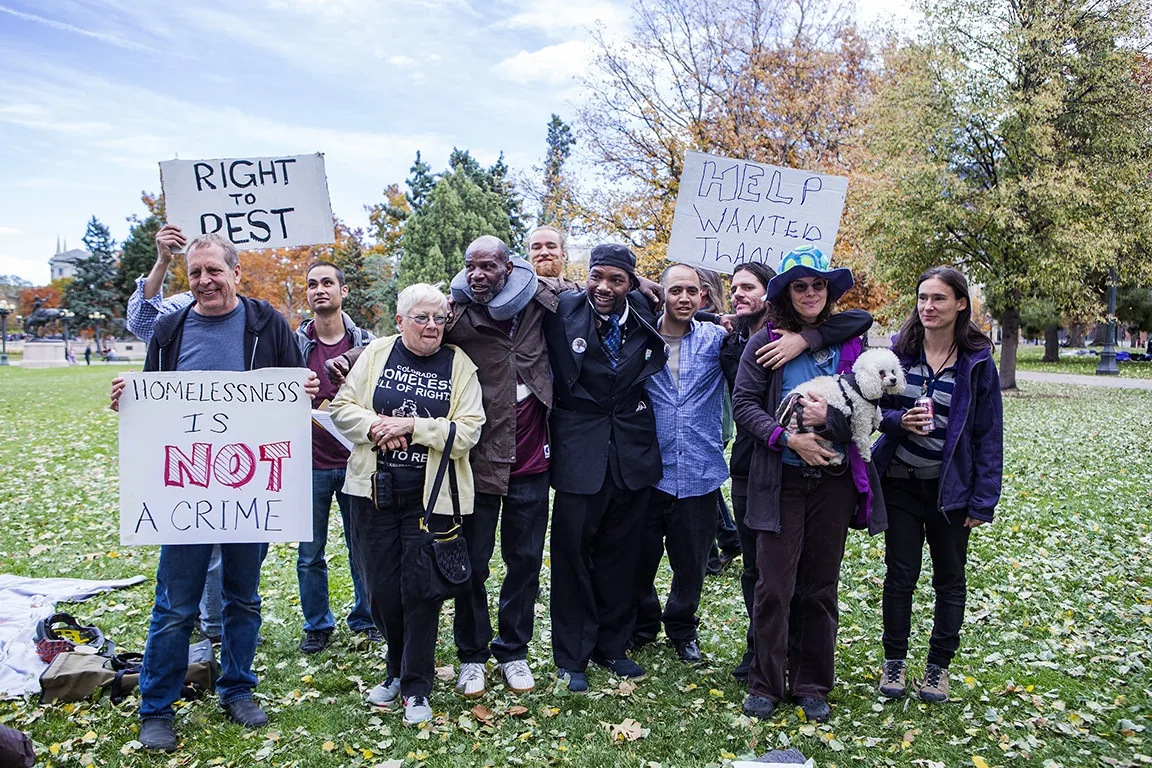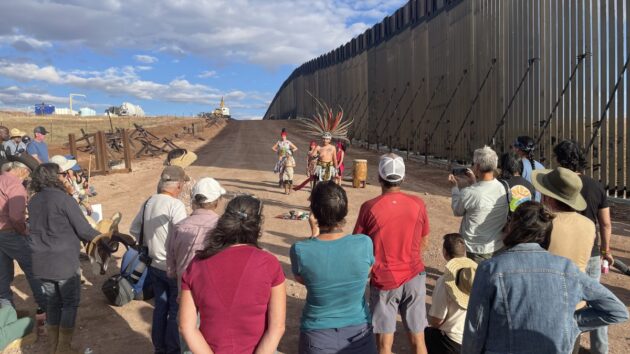The Denver “Right to Survive” initiative lays out new enforceable human rights for people experiencing homelessness and gives them new standing in court to sue when their rights are violated. It would have overturned a city law that bans resting and sheltering in public spaces. Wealthy interests out raised local supporters 23:1 to defeat the measure.
A week before Denver’s May 7, 2019 special election, Fox News host Tucker Carlson — the same guy who called women “extremely primitive” — urged residents to vote “NO” on Denver’s historic “Right to Survive” initiative.
Opposition to the measure (Initiative-300) was strong and well funded. The National Association of Realtors, National Restaurant Association, National Western Stock Association, energy interests and some of Colorado’s most powerful corporate lobbies mobilized over $2.3 million for the “NO” campaign, out raising local supporters 23:1 to defeat the measure.
Perhaps it’s not surprising so many wealthy one-percenters poured incredible funds in to crush the measure. It proposes something historic: new, legally enforceable, human rights for people experiencing homelessness. It would have also overturned City of Denver’s ongoing ban on resting and sheltering in public by recognizing rights to rest and shelter in a “non-obtrusive manner” on public land.
Existing Law Strips Propertyless People of Rights
Existing city policy directs law-enforcement to force homeless residents resting in public places to “move along.” Said more bluntly, police can legally tell citizens to “get out!” of public areas if they appear not to have financial resources. As in cities across the nation, the health of homeless people in Denver is secondary to the demands of neighborhood residents and businesses who feel inconvenienced by the presence of poor people.
The Right to Survive
Initiative-300 flipped the dynamic by incorporating rights to rest, shelter and accept free food in a non-obstructive manner on public lands, as well as the right to sleep in cars. Crucially, the law made it a civil rights violation for police, the city, private corporations and private security to violate the right to survive in public.
Such expansions of rights are what social movements are made of.
Who Has Rights?
Two years after its ratification, the United States Constitution was improved in 1789 with the Bill of Rights. At the time, white men with property were guaranteed freedom of speech, belief, self-defense, the right to face accusers in criminal trials, and the right to a jury of their peers, among other civil rights.
It took a civil war in Rhode Island – the Dorr War – in the mid 1840s, to secure suffrage for property-less white men. It took a national civil war to emancipate African American slaves from their status as property and to theoretically apply Bill of Rights protections for freed male slaves. Enforcing these rights has been a core struggle of social movements ever since. In 1920, after centuries of struggle, women finally won the right to vote nationally, but not equal rights. (The Equal Rights Amendment for women’s equality under the law has been proposed but is still languishing.) Recently, same-sex marriage has been declared a right.
But it hasn’t all been forward progress.
Property itself was given access to Bill of Rights protections through an 1886 Supreme Court decision that established corporations as “persons” under the law.
To the homeless, it is obvious rights are not equally enjoyed. Their lack of property ownership appears to be the sticking point.
A Human Right
That is why a group called Denver Homeless Out Loud took this historic step of using their local government to expand rights for people experiencing homelessness in the city. Though they lost at the polls, this idea of a real human right to survive in the 21st century did not die in Denver. It was born – through the determination and commitment of the people who live here. Those who anted up $2.3 million to defeat the measure have not ended the struggle for basic rights sparked by Denver residents advancing this remarkable initiative.
For more information:
Denver Homeless Out Loud: https://denverhomelessoutloud.org/
ACLU of Colorado statement in support: https://www.denverpost.com/2019/04/26/homelessness-initiative-300-vote-yes-aclu/
Letter in support: https://www.westword.com/news/prosecutor-jake-lilly-argues-in-favor-of-denvers-initiative-300-11332945
Campaign finance reports, opposition (raised: $2,340,119.00): https://www.denvergov.org/media/denverapps/cfreports///2019//Issue//Together_Denver/2019_TogetherDenver_April19.pdf
Campaign finance reports, supporters (raised: $99,801.70): https://www.denvergov.org/media/denverapps/cfreports///2019//Issue//Denver_Right_to_Survive_Initiative_Committee/2019_DenverRightToSurviveInitiativeCommittee_April19.pdf
Fox News coverage, warning the initiative would turn Denver into Kolkata, India: https://www.msn.com/en-us/video/be-prepared/denver-activists-pushing-law-to-allow-homeless-to-set-up-camps-in-any-public-place/vp-AAAOcdH
Ben G. Price is the national organizing director for the Community Environmental Legal Defense Fund (CELDF), the non-profit law firm that assisted Denver Homeless Out Loud draft the language for Initiative-300. He is the author of the new book “How Wealth Rules the World: Saving Our Communities and Freedoms from the Dictatorship of Property.”



